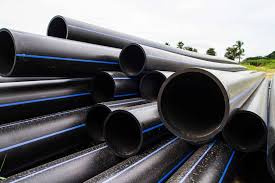Dec . 23, 2024 23:01 Back to list
hdpe corrugated sewer pipe factories
Exploring HDPE Corrugated Sewer Pipe Factories A Sustainable Solution for Modern Infrastructure
In the ever-evolving world of construction and civil engineering, the choice of materials can significantly impact both performance and sustainability. High-Density Polyethylene (HDPE) corrugated sewer pipes have emerged as a leading option for managing wastewater effectively, offering numerous advantages over traditional materials. As population growth and urbanization increase the demand for robust wastewater management systems, an exploration into HDPE corrugated sewer pipe factories reveals their crucial role in modern infrastructure.
The Significance of HDPE Corrugated Pipes
HDPE is renowned for its high tensile strength and resistance to corrosion, making it an ideal material for sewer pipes. Unlike traditional materials such as concrete or PVC, HDPE pipes are lightweight, which simplifies transportation and installation processes. Their corrugated design provides added structural strength, enabling them to withstand heavy loads and harsh environmental conditions. Furthermore, HDPE pipes are resistant to chemical degradation, ensuring a long lifespan with minimal maintenance.
The use of HDPE in sewer systems also aligns with sustainable practices. As cities strive to adopt eco-friendly approaches, HDPE pipes contribute positively by reducing the carbon footprint associated with the lifecycle of sewer infrastructure. They are manufactured from recyclable materials and, at the end of their service life, can also be recycled, thus minimizing waste.
The Manufacturing Process
The production of HDPE corrugated sewer pipes takes place in specialized factories equipped with advanced technology. The process typically begins with the selection of high-quality HDPE resin, which is then melted and extruded into a continuous tube. This extruded tube is subsequently shaped into a corrugated or ribbed form, enhancing its structural capacity.
Factories employ rigorous quality control measures throughout the manufacturing process to ensure that the pipes meet industry standards. Testing includes assessments for tensile strength, impact resistance, and flexibility, ensuring that the final product will perform reliably in real-world applications. Moreover, many factories are adopting environmentally friendly practices, such as recycling scrap material generated during production, thus reducing waste and conserving resources.
hdpe corrugated sewer pipe factories

Innovations and Technology
Advancements in technology are revolutionizing the production of HDPE corrugated pipes. Modern factories are integrating automated systems to enhance efficiency and precision. For instance, real-time monitoring systems are employed throughout the manufacturing line to detect any anomalies, ensuring a consistently high-quality product. Additionally, the implementation of computer-aided design (CAD) software allows for customization, enabling manufacturers to create pipes tailored to specific project requirements.
Emerging innovations also focus on enhancing the functionality of HDPE pipes. Some factories are exploring the integration of smart sensors within pipes to monitor flow rates and detect leaks, contributing to more efficient wastewater management. These technologies not only improve operational efficiency but also help in protecting the environment by minimizing the risk of untreated wastewater entering ecosystems.
Future Prospects
The future of HDPE corrugated sewer pipe factories seems promising as the demand for sustainable infrastructure continues to rise. With urban areas expanding and stricter environmental regulations being imposed globally, the need for reliable and eco-friendly solutions has never been greater.
Moreover, as awareness of the environmental impact of construction materials grows, more municipalities and construction firms are looking to HDPE pipes as a viable alternative. The increased investment in R&D for HDPE manufacturing processes will likely yield even more efficient and sustainable production methods.
In conclusion, HDPE corrugated sewer pipe factories are at the forefront of a critical industry that supports modern infrastructure and environmental sustainability. Through innovative practices and an emphasis on quality and efficiency, these factories are not just producing pipes; they are laying the groundwork for a sustainable future in wastewater management. As we continue to navigate the challenges of urbanization and environmental stewardship, the role of HDPE pipes will undoubtedly become increasingly significant.
-
High-Quality PVC Borehole Pipes Durable & Versatile Pipe Solutions
NewsJul.08,2025
-
High-Quality PVC Perforated Pipes for Efficient Drainage Leading Manufacturers & Factories
NewsJul.08,2025
-
High-Quality PVC Borehole Pipes Durable Pipe Solutions by Leading Manufacturer
NewsJul.08,2025
-
High-Quality PVC Borehole Pipes Reliable PVC Pipe Manufacturer Solutions
NewsJul.07,2025
-
High-Quality UPVC Drain Pipes Durable HDPE & Drain Pipe Solutions
NewsJul.07,2025
-
High-Quality Conduit Pipes & HDPE Conduit Fittings Manufacturer Reliable Factory Supply
NewsJul.06,2025

